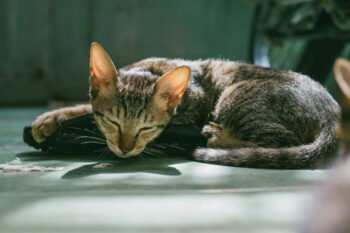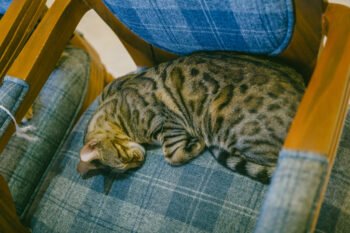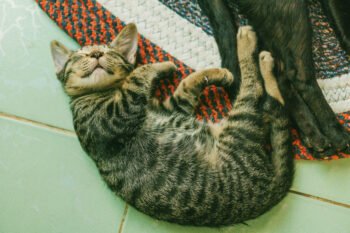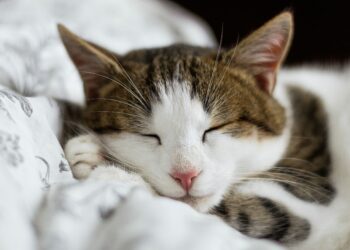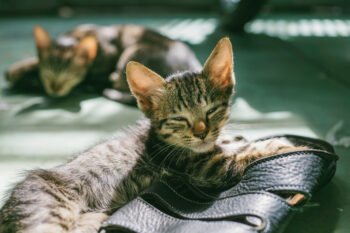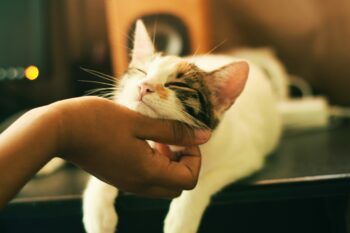Dr. Dennis Turner is one of the world’s leading researchers on the feline-human bond. He is co-author of The Domestic Cat: The Biology of its Behaviour, President of the International Association of Human-Animal Interaction Organizations, and Director of the Institute for Applied Ethology and Animal Psychology in Hirzel, Switzerland. He has studied many different aspects of how people and cats interact. He was interviewed for The Daily Cat by Brad Kollus.
Do cats communicate with their owners? How?
Yes, of course they do, although it is difficult to prove. My former student, Dr. Maya Weilenmann, and I used an approach based upon information theory to study how the actions of one individual (the cat or the owner) changed the behavior of the other (the owner or the cat.) We were able to demonstrate that there is indeed communication or information transfer. The communication patterns between person-cat pairs were individually different–in other words, not species-specific, but rather tailored to the individual human-cat relationship.
Do cats really help their owners emotionally
Indeed they do. Dr. Gerulf Rieger and I found that interacting with a cat can reduce feelings of depression and anxiety and lower a person’s introvertedness. Interestingly, former cat owners also had higher levels of depressive moods and anxiety than current cat owners, implying that it is really the presence of the cats, besides interacting with them, that helps improve our moods. However, women’s moods are more strongly affected by the cats than men’s moods.
Do cats know when their owners are depressed?
Yes, our results show that cats do react to an owner’s current mood, especially when depressed, but only after the owner initiates contact and comes close to the cat. Once that happens, the cat stays closer to the person, and vocalizes and flank-rubs more often, than when the person who has approached the cat is in a better mood.
How do you think cats perceive their owners?
My research implies that they consider us as true social partners, even when they were socialized to both other cats and people during their infancy. Still, they learn about our behavior during later interactions with us, and I do not believe they view us as other cats, certainly not as “mothers,” although we provide them with food.
What can owners do to increase the bond they have with their cats?
Just accept these fascinating animals as they are — as independent, self-willed creatures who, in the case of cats allowed outdoors, choose to continue to live together with us (always returning home) and in the process, offer us more than most people ever imagine or are conscious of.

